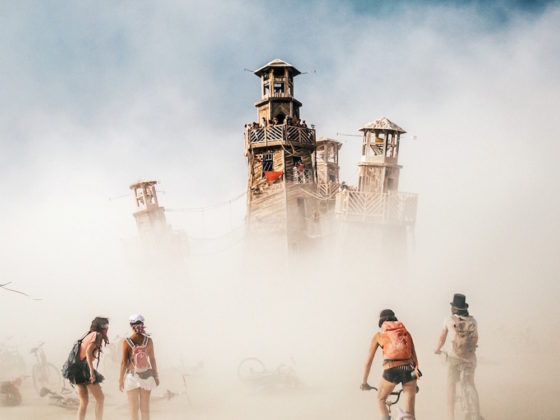NEW MEXICANS HAVE a dozen different metaphors about dust. Most of them involve housecleaning and car washes, but they’re all meant to be ironic. I love this place, this dust. And two things you learn about dust pretty quickly are:
- it goes everywhere, and
- it can make you see some pretty strange things. Even meet some strange people. Some of them aren’t people at all.
Here is what I’ve seen in the dust, and once, what the dust saw in me.
